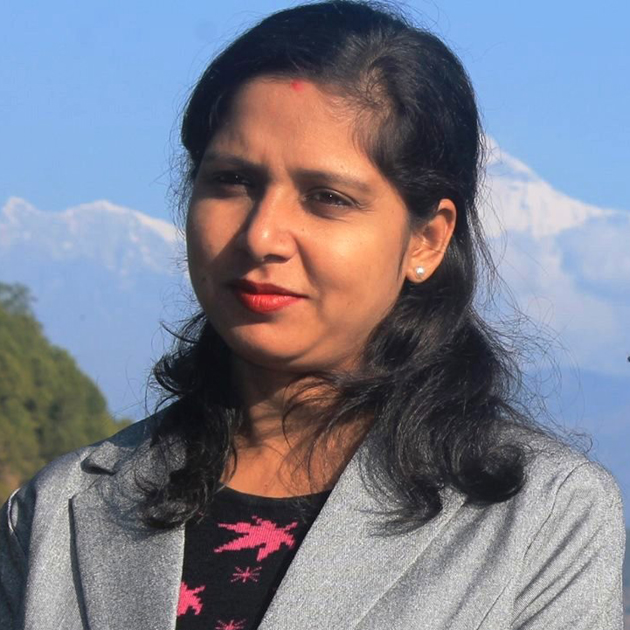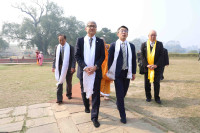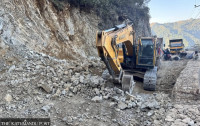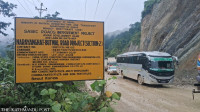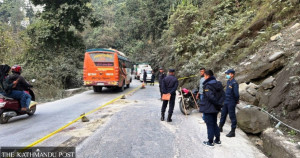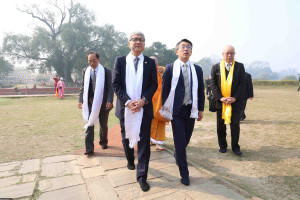Lumbini Province
Madrasa students cannot sit for Secondary Education Examination for lack of syllabi
The federal government has yet to finalise the syllabi for madrasas from grades 6 to 10.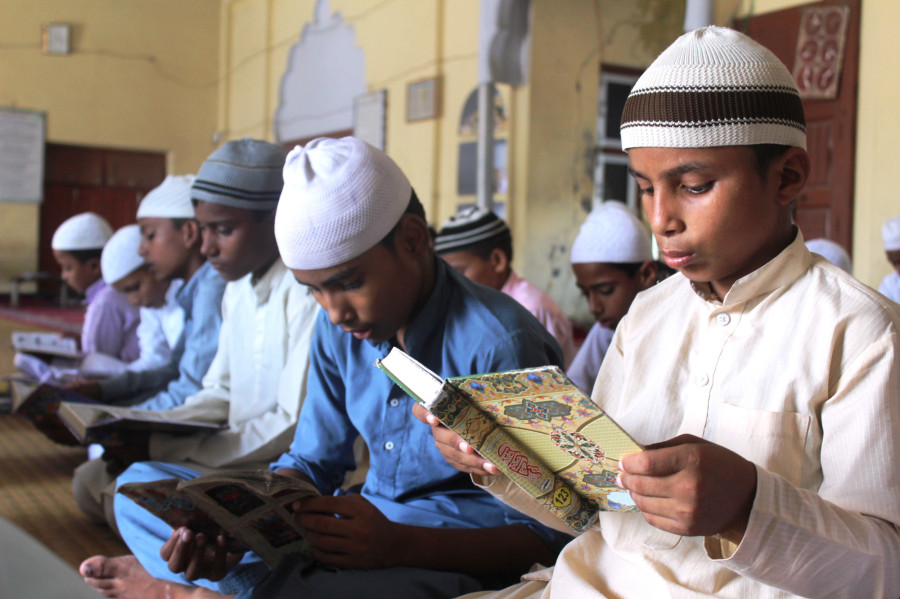
Amrita Anmol
Farhan Alam is a 10th grader at Jame Sirajul Uloom Al-Safia, a madrasa (Muslim educational institute) in Kapilvastu. But Alam may not be able to appear for the Secondary Education Examination this year, as his school is yet to receive permission from the Office of the Controller of Examinations to conduct the exams. Like Alam, the fate of 60 other students hangs in the balance.
Madrasas in Nepal used to be religious institutions until 2004 when the government started registering them and had them adopt the Nepali curriculum while allowing them to continue as institutions of religious learning. However, the federal government has only finalised the syllabi for grades four and five. The syllabi for grades 6 to 10 have been designed but are yet to be finalised, according to Maulana Mahasud Khan, general secretary of Rastriya Madrasa Sangh. Since the madrasas do not have syllabi, their students are not qualified to sit for board examinations conducted by the state.
The madrasas have been conducting classes till grade 10, as they were given permission by local units to run classes till the secondary level. The local units, however, have not made the provision to qualify the students of madrasas to sit for Secondary Education Examination. The Office of the Controller of Examinations, which is under the federal government, decides which schools are qualified to conduct board examinations.
“We have been frequenting various government agencies to seek permission to allow our students to sit for board examinations,” said Abdul Gani Alqufi, maulana of Jame Sirajul Uloom Al-Safia. “This logistic quandary has deprived the children of madrasas of further education prospects.”
The madrasa, which was established a century ago, has 1,027 students.
Similarly, the students of madrasa Maditul Olumaharpur in Nawalparasi (West) are also facing the same problem. Pratappur Rural Municipality had granted permission to the madrasa to conduct classes up to grade nine but the ninth graders weren’t allowed to fill the required form for Secondary Education Examination this year.
Muwaraha Ahamad, a ninth grader at the madrasa, fears that he will not be able to appear for the board examination next year.
“We could not fill the form this year. We don’t know whether we can appear for the boards next year or not,” he said.
Nineteen students, including Ahamad, had appeared in an examination conducted by the local unit in grade 8. They had followed the syllabi of the madrasas in India.
“We borrowed the syllabi from the madrasas in India and taught our students. Based on the syllabi, we prepared the tests,” said Ameer Yajumal, maulana of the madrasa.
Abdul Rauf Khan, former education officer, said that the government’s lackadaisical approach to madrasa education has left hundreds of Muslim students in a lurch.
“The government directed local units to upgrade madrasas to the secondary level without proper planning, including that for syllabi and textbooks,” said Khan. “They did not think it necessary to make provisions for madrasa students to sit for Secondary Education Examination.”
Dadhiram Sharma, the education coordinator of Pratappur Rural Municipality, said his office had granted permission to local madrasas to operate as a secondary school.
“We will seek admission for madrasa students in other schools and allow them to sit for the board examinations. The future of students cannot be ruined due to a lack of syllabi,” said Sharma. “We are in constant talks with the Education Coordination Unit to solve this problem once and for all.”
Around 700,000 Muslim children are enrolled in 4,000 madrasas across the country. Out of the 4,000, the centre has granted government school status to about 1,000 madrasas, according to Zaheed Pervej, a Tribhuvan University professor who has researched extensively on Nepali madrasas.
Sudarshan Baral, the minister for Social Development, who is also responsible for overseeing Province 5’s education sector, said that he will take immediate steps to coordinate with the Office of the Controller of Examinations in regards to the future of madrasa students.
“I will talk to the concerned authority and try to give the same status and opportunity to madrasa students as that of community school students,” Baral said.
On Sunday, Muslim leaders met Chief Minister Shankar Pokharel and submitted a report underlining the problems of madrasas and plausible solutions. Pokharel said that he will pressurise the concerned authority to address the issue, starting with the preparation of syllabi for madrasas that would qualify their students to sit for Secondary Education Examination.
“The provincial government will take initiatives to nationalise madrasa education,” said Pokharel.




 9.12°C Kathmandu
9.12°C Kathmandu